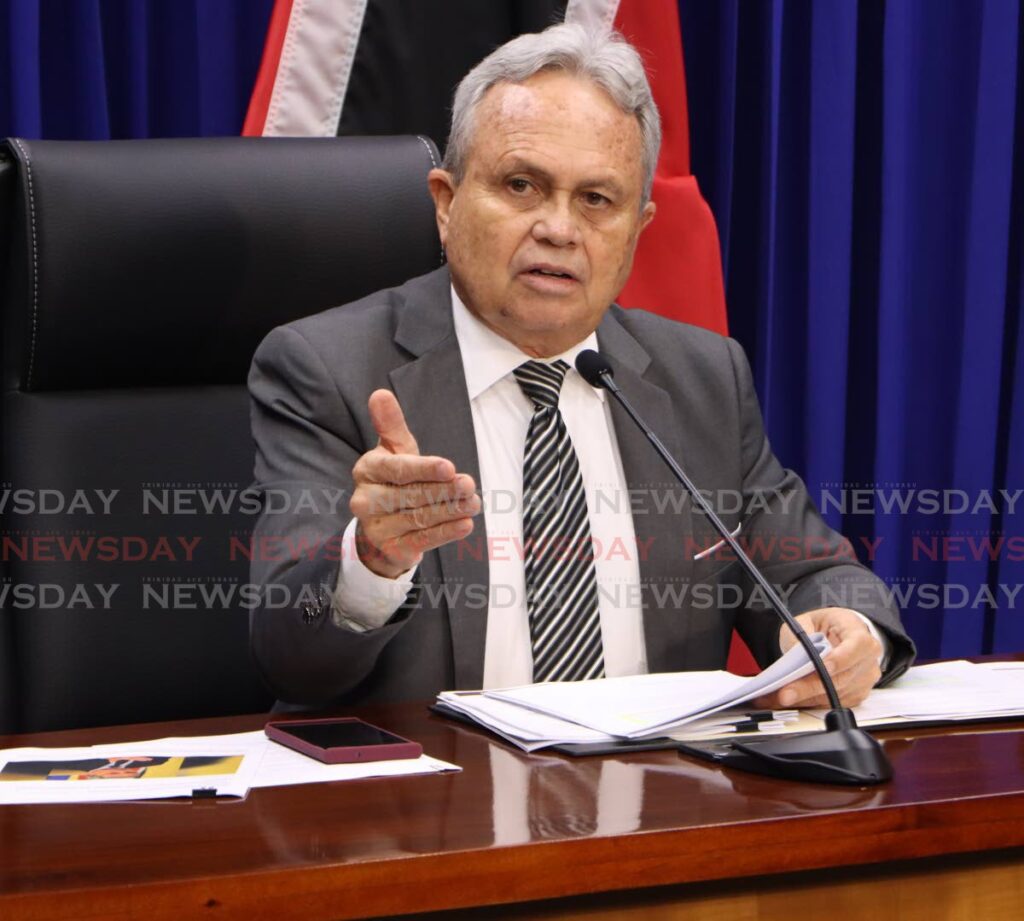Budget Day arrives with chambers, lobby groups on alert

FINANCE Minister Colm Imbert will deliver the country’s budget for the upcoming financial year from 1.30 pm on September 30, with expectations high across all quarters.
Economists, business chambers and the population at large have anticipated another major fiscal package, carrying on from the $57.7 billion 2023/2024 budget and the supplementary budget in June, amounting to $3.81 billion.
One issue remains on the tips of the tongues of many public figures and the general population.
Some lobby groups have raised questions about the government’s investment in national security, and whether crime-fighting strategies are being appropriately rolled out, particularly in the context of increasing budgetary allocations.
In the 2021/2022 budget, some $5.227 billion was allocated, which increased to $5.798 billion in 2022/2023.
The 2023/2024 budget allocated $6.912 billion to national security. Despite the increased allocations, the murder rate remains alarmingly high, with the current toll reaching near 470 as of September 29.
Stakeholders have urged the government to ensure financial investments result in tangible improvements in public safety, guided by principles of good governance and accountability.
Bishnu Ragoonath, lecturer in the Department of Social Sciences at UWI, told Newsday crime was indeed a most concerning factor, as is transparency.
“The pressing issue politically (revolves around) crime and the citizenry living in fear.
“Now as to how that will be treated in the budget, that is up to the Prime Minister and the Minister of Finance to decide,” he said.
“As a lecturer in administration and government, efficiency, effectiveness and value for money are three things that are required (of the government).
“Unfortunately, all of those things fall within the context of good government and include things like transparency and accountability, and those are things (for which) I hope the government has measures in place to promote good governance for society, which includes those things, such as value for money…
“When we have to talk about the budget and simple things, like procurement legislation, calls for transparency and accountability, we’re not sure we’re getting all that as is required.”
Ragoonath said good governance in itself needs to be addressed in the budget.
The mid-year review in June 2024 already signalled the government's ongoing efforts to boost spending on healthcare, education, infrastructure, and social services.
The supplementary budget addressed challenges like youth unemployment, support for small and medium enterprises (SMEs) and stimulating digital transformation and renewable energy projects.
The last full-year budget was larger than previous ones and focused heavily on economic diversification, infrastructure development, and social welfare programmes.
The management of public debt remains a major concern. As of 2024, public debt rose to over $130 billion – approximately 70.9 per cent of the country's GDP.
That package, however, included a significant reduction in the fuel subsidy to $1.5 billion, down from $2.6 billion in the previous budget.
Inflation, fiscal deficits and global energy price volatility might have dampened some of the intended effects.
Business chambers and civil-society groups have expressed concerns about whether the measures were enough to tackle the deeper structural issues within the economy.
Various sectors are hoping for targeted solutions.
For instance, the TT Chamber of Industry and Commerce has been vocal about the need for greater support for businesses, particularly SMEs, along with measures to reduce bureaucracy and improve the ease of doing business.
There have been calls for fiscal reforms to attract foreign direct investment, especially in non-energy sectors like tourism, digital services, and manufacturing. Many are also pushing for a reduction in corporate taxes to foster more competitive business environments and stimulate growth.
In addition to concerns about business and investment, the public remains worried about the rising cost of living. Inflation has been a consistent challenge, with citizens bearing the brunt of price increases in essential goods and services
Many are now expecting or hoping, at least, for relief measures in this year’s budget. The energy sector will likely be a key area of focus, as it continues to be the backbone of the national economy, despite declining oil and gas production.
With global energy prices experiencing fluctuations, the government could announce new strategies to stabilise the sector while advancing economic diversification. Recent discussions have centred on incentives for the energy sector to expand investments in renewable energy and reduce reliance on fossil fuels, as part of the country's broader environmental agenda.
A push for revenue diversification is expected, with discussions about promoting industries such as tech innovation, green energy, and tourism to reduce dependency on oil and gas revenues. Imbert is also expected to outline incentives for emerging sectors like digital services, which align with the government’s broader goals for digital transformation.
Expanding e-government services, improving digital infrastructure and supporting tech startups have been key themes in past budgets, and these are likely to feature again, with possible funding for digital literacy programmes and cyber-security initiatives. Addressing youth unemployment and investing in the creative sector may also feature prominently.
Industries like fashion, music and film may receive increased allocations if the government heeds the recommendations from the many lobby groups, most of which have made these requests.

Comments
"Budget Day arrives with chambers, lobby groups on alert"